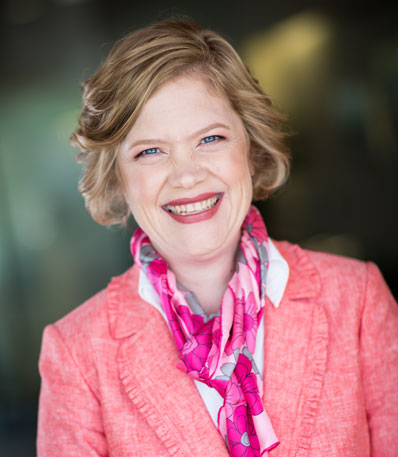Voices of U of U Health
Addressing Dependent Care Needs
The COVID-19 pandemic brought rapid and abrupt changes to our daily lives. University of Utah Health recognizes many of our employees are experiencing heightened stress, anxiety, and loss—and have been now for more than one year. We continue to be concerned about employee well-being and the impact the pandemic is having on career development, work culture, and dependent care needs.
To assess impact in these areas and identify the greatest areas of need, a web-based survey was distributed in August 2020 to all 27,700 clinical and non-clinical U of U Health faculty, staff, and trainees. Survey items measured dependent needs (both children and adults), work-life balance needs, career development impact, and stress related to the pandemic.
Participant feedback was immediately used to inform a campuswide One U initiative to support the family caregiving needs of all university employees.
Key Suvey Findings
Out of the 27,700 surveyed, 18 percent (5,030) completed the entire survey. The survey examined responses from clinical (51 percent) and non-clinical faculty, staff, and trainees. Overall, the data was consistent across clinical and non-clinical respondents. It confirmed that everyone—men, women, those with and without children or adult dependents—were struggling with the impact of COVID-19.
Nearly half (48 percent) reported having at least one child 18 years old or younger, while another 11 percent indicated they have adult dependents they provide care for. Additionally, we found that approximately:
- 49 percent of those who had children reported that parenting and managing virtual education for children was causing them stress
- 21 percent reported considering leaving the workforce
- 30 percent reported considering reducing hours
- Faculty (55 percent) and trainees (60 percent) reported decreased productivity
- 47 percent of participants expressed concern about COVID-19 impacting their career development, with 64 percent of trainees being highly concerned
Notably higher percentages (30-50 percent) of participants with caregiving responsibilities—particularly women faculty and trainees, and (in a subset of cases) those underrepresented in medicine—were considering leaving the workforce (27 percent) or reducing hours (41 percent) and were worried about their career development (52 percent) related to the COVID-19 pandemic. These trends are highest among those in clinical roles who also have caregiving responsibilities (33 percent, 44 percent, and 48 percent, respectively).
The 2020 U of U Health needs assessment survey makes a unique contribution to the existing body of research. It examined dependent care needs, work culture needs, and stress for both clinical and non-clinical employees in a tertiary care academic medical center during the global pandemic caused by SARS-CoV-2. The findings were recently published in JAMA Network Open.
Next Steps
It was sobering to learn that during a time of economic recession, 21 percent of our workforce were considering leaving their jobs because of the severe levels of stress they were experiencing. As productivity drops and people leave, it puts even more stress on those remaining, perpetuating a cycle of increased stress. Anything we can do to support people in reducing stress helps everyone do what they came into health care to do in the first place: care for patients and the community, educate and learn, and further the fields of science through research.
It is imperative that medical centers support their employees and trainees to ensure a diverse workforce and the future of our health care profession. Early in the pandemic, U of U Health organized a Childcare Workgroup to address immediate needs.
Awareness of Available Resources for Families
In addition to conducting the needs survey, the Childcare Workgroup created a centralized location on the Pulse intranet connecting U of U Health employees to available family and childcare resources on and off campus. These resources include childcare consultation, adult care, pet care, tutoring, online learning resources, and subsidized childcare facility options. In collaboration with the workgroup, the Office of Student Affairs created a similar resource site for main campus employees.
Creating New Resources for Families
The U of U Health Childcare Workgroup secured funding from Senior Vice Presidents Michael Good and Dan Reed, and former U of U Health Hospitals and Clinics CEO Gordon Crabtree, for a campus-wide One U effort to offer new and enhanced dependent care resources for all university employees. With this financial support, the university is sponsoring up to 10 hours of tutoring through the University Learning Center for students in grades 6-12 who are children of U employees. When those hours are utilized, families may continue to pay out of pocket for additional hours at a rate of $11/hour. And parents who have concerns about their child’s reading progress can receive a free reading assessment at the University of Utah Reading Clinic for students in kindergarten through 12th grade.
Additionally, to provide employees with more affordable and flexible care management options, the university recently partnered with Komae. This free cooperative childcare app lets parents identify and vet families with similar parenting styles and COVID-19 hygiene practices to build their pod for shared childcare and education.
Supporting the dependent care needs of our employees remains an urgent priority and critically important to the core missions of our institution. We are committed to cultivating a culture focused on preventive measures to avoid burnout. And our campuswide partnership continues to explore new and enhanced dependent care resources for all university employees. We are grateful for the support of our university leaders and the diverse team of experts from across campus who came together to work on this important project.



